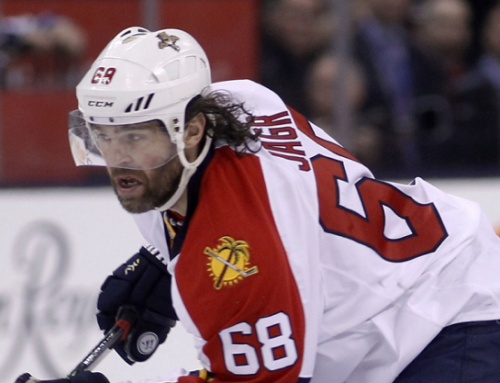
Beware of “Rebuilding through Free Agency” in real hockey, and in fantasy hockey.
The season is not even over and rumblings about free agency are starting to increase. The Boston Globe's Fluto Shinzawa writes a bit about it in his article of May 25, 2014 called "In NHL, busy trade summer awaits". Lyle Richardson of Spector's Hockey also reference's Shinzawa's column in his own called "Is The Era Of Building Through Unrestricted Free Agency Over?" and he has also created a good synopsis in July 2012 of "Notable NHL UFA signings since 1995".
Shinzawa says "GMs are wising up to paying inflationary prices for non-impact players" and "[the] era of building through free agency is over". Richardson is a bit more cautious when he says "with more teams re-signing key players before their UFA eligibility, the possibility of a constantly increasing cap ceiling and the ability to retain portions of a traded player's salary, free agency could become less important than it once was."
Was free agency meant to be a tool for NHL GMs to build or rebuild their teams through? I do not believe it was its intended purpose and we should not look at it the same way we do for our fantasy leagues.
Free agency was created as a mechanism for players to a) move to a team they want to be a part of and b) to get paid a fair value. Before unrestricted free agency players were pretty much stuck on the teams they were on and getting a fair salary was not always easy for them.
When was the last time that a player demanded to be traded away from your fantasy squad because they did not like being on your bench or felt that they could get more money from being on one of the other fantasy league owner's teams? Never, so why do we look at this as being a preferred tool for NHL GMs?
At first unrestricted free agency started at age 32 but then over subsequent labor negotiations was lowered to age 27 or given to players that accrued seven years as an NHL pro.
Once they got these rights, players started to push back by waiting for free agency instead of signing with their clubs to get better contracts. This lead to a glut of players hitting the market and NHL GMs had to fill up their rosters by using free agency. It was necessary but it was far from being a tool to build a team.
Some teams tried to buy their way to the top and even now teams still try to do. Want an example? Hmmm, how about David Clarkson. Lyle Richardson evaluates how few of those past free agent signings were really worth it. That is nice to see but it slightly misses the point which I will come back to a bit later.
The fact that there are fewer stars or big names available only means that the pendulum has swung in the other direction. Players are getting salaries they believe are fair and they are willing to stay with their current teams. Not only are they getting salary but they are sometimes getting no-trade or non-movement clauses added too. Why do they need to become UFAs if they feel they are getting what they deserve?
Does this mean that all of those contract signings removing players from reaching free agency are good for the teams? No, there are still teams that are over paying but it is not being recorded against their free agency record.
Back to Lyle Richardson's evaluation, he hits the mark in showing that for a deal to work out it still has to be shrewd. The same thing would apply to those contract signings that keep players off of the UFA market too.
Shinzawa is also correct, "The free agent market is an opportunity to sign complementary players, not stars." Even if it is already assumed, he should add 'at a good price' to his statement though.
If a GM over spends in any area they end up hurting the remaining portion of their club. Even if the salary cap continues to go up or they are able to hide salary in the minors or in long-term-disability injuries it eventually catches up.
If you are in a fantasy league where you have to bid on free agents then take this lesson to heart and keep your wits about you. Don't feel you have to bid more than what you are willing to spend. Don't feel that you have to make the biggest splash in order to be successful. Don't panic if you don't get the guys you want.
Give it some time and you'll find your fellow owners coming to you seeking relief from those salary constraints. That's when you'll get the price you want.





 FLA
FLA CHI
CHI NYR
NYR PIT
PIT L.A
L.A COL
COL CBJ
CBJ BUF
BUF ANA
ANA MTL
MTL EDM
EDM OTT
OTT VAN
VAN
